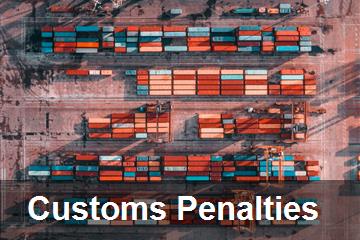
18 set 2024
The recent legislative reform approved on August 7 by the Council of Ministers, awaiting publication in the Official Gazette, emphasizes criminal penalties over administrative ones for customs violations.
The new framework categorizes offenses into smuggling due to omitted declaration and smuggling due to false declaration, with administrative penalties applied only in specific minor cases.
The reform raises concerns about the proportionality and effectiveness of penalties, especially for errors stemming from interpretative difficulties rather than intentional evasion.
The involvement of judges in assessing the subjective intent of the violator adds complexity to the enforcement process.
The legislative reform approved on August 7 by the Council of Ministers, pending publication in the Official Gazette, significantly shifts the focus of the customs penalty system towards criminal sanctions.
This reform prioritizes criminal penalties for customs violations, relegating administrative sanctions to minor infractions.
The new framework revolves around two main categories of offenses: smuggling due to omitted declaration (Article 78) and smuggling due to false declaration (Article 79). Administrative penalties (Article 96) are applied only when none of the aggravating circumstances of smuggling are present or when the amount of customs duties involved exceeds 10,000 euros.
The threshold of 10,000 euros, which includes both duties and VAT, often triggers the application of criminal penalties, involving judicial proceedings.
Article 78 imposes fines ranging from 100% to 200% of the due duties for any form of omitted declaration involving non-Union goods entering or circulating within the customs territory, or Union goods exiting the territory.
Article 79 similarly penalizes false declarations regarding the quality, quantity, origin, and value of goods, as well as other necessary elements for customs tariff application and duty calculation.
Aggravating circumstances under Article 88 add imprisonment to the fines, with up to 3 years for duties exceeding 50,000 euros but not more than 100,000 euros, and 3 to 5 years for duties over 100,000 euros.
The shift from administrative to criminal penalties for false declarations raises concerns about compliance with EU principles of effectiveness, proportionality, and deterrence.
Many errors by operators are due to interpretative challenges rather than intentional evasion.
Previously, such errors were assessed by customs officials or the Guardia di Finanza, but now, exceeding the 10,000-euro threshold mandates judicial involvement to determine the violator's intent.
If the behavior is found to be due to negligence rather than intent, the violation reverts to administrative sanctions under Article 96, with fines reduced to 80-150% of the due duties.
Additionally, both criminal and administrative penalties often result in the confiscation of the goods involved in the violation.
Critical Aspects and Potential Issues:
- Compatibility with EU principles of proportionality and deterrence.
- Increased complexity and judicial involvement in assessing intent.
- Potential for disproportionate penalties for unintentional errors.
Common Pitfalls and Errors:
- Misinterpretation of customs regulations leading to unintentional violations.
- Over-reliance on criminal penalties for minor infractions.
- Inadequate differentiation between intentional evasion and honest mistakes.
Suggestions and Useful Indications:
- Clear guidelines and training for operators to minimize interpretative errors.
- Balanced approach between administrative and criminal penalties.
- Enhanced cooperation between customs authorities and judicial bodies to ensure fair assessment of violations.

